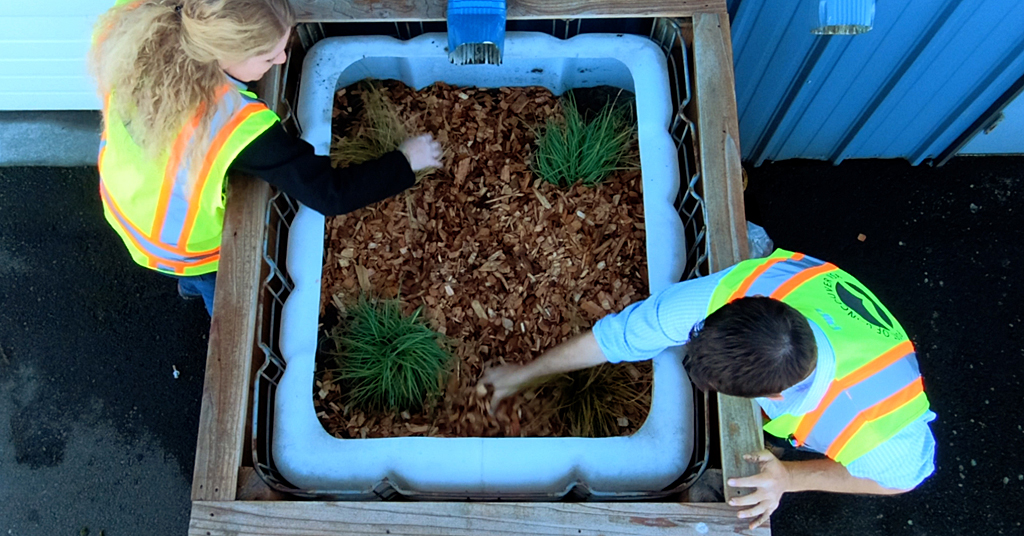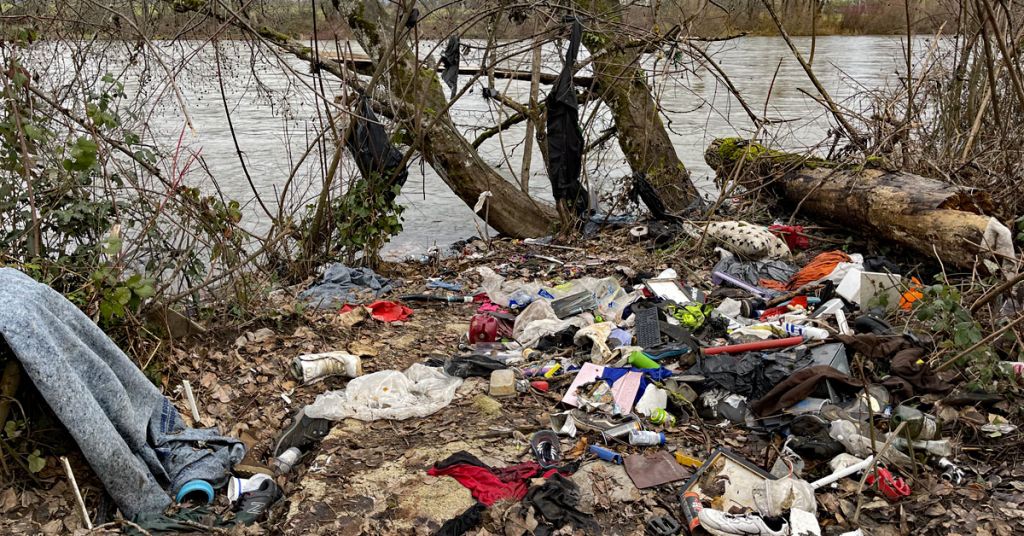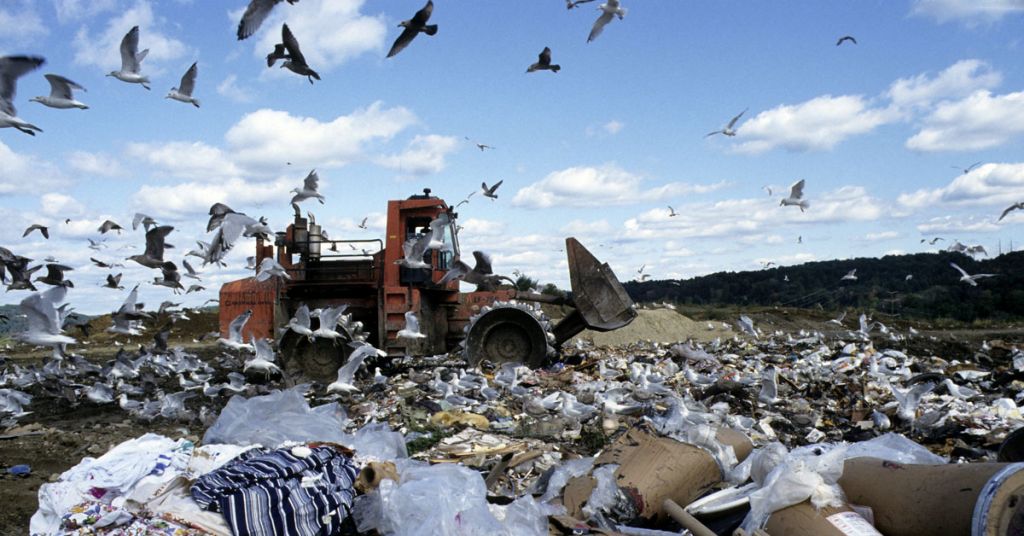They’re like mini Superfund sites free-floating in the environment. The toll they inflict is immense
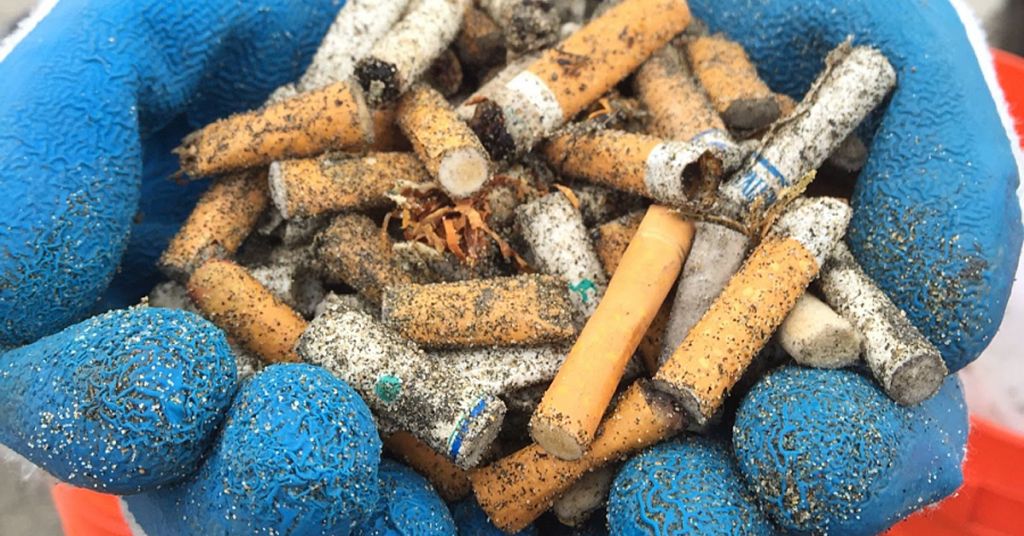
Cig shore: Butts littered on busy streets are swept into storm drains, eventually finding their ways to the ocean. Photo: NOAA
This story was originally published in Hakai Magazine and is reprinted here with permission.
By Jude Isabella, Hakai Magazine. November 29, 2022. One of the lessons my father taught me about driving—this was in the early 1980s—had nothing to do with a gas pedal, a stick shift, braking, checking mirrors or what to do when hitting a patch of ice.
It had to do with cigarettes.
“Jude Mary,” he said, always using my middle name when he wanted my attention, “make sure you roll up the window when you park. People throw cigarettes out their car windows and one could land on your seat.”
Four decades later, I roll up my car windows while parked, even if just for a minute, for fear of a burning cigarette landing in my car.
Has a smoldering butt ever inadvertently lit someone’s car on fire? I have no idea, but while researching cigarette butt litter, I learned that birds like to line their nests with cigarette filters; and pigeons, starlings, sparrows and robins have inadvertently burned down buildings by carrying glowing cigarette butts to attic nests.
Smoldering cigarette butts, however, are less a problem than they once were. According to a 2019 U.S. study, since 1980, the number of smoking-caused fires has fallen. Wildfires erupting from a tossed cigarette have declined by 90%, while house fires have declined by 52%.
Canada has experienced declines as well. A couple of changes in the past few decades have helped: fewer people smoke, plus cigarettes are now self-extinguishing—designed to burn out if no one is puffing on them.
Hooray. If only we could extinguish another problem with smoking: litter.
Since this past Earth Day in April, when our magazine team picked up trash from the grounds around our waterfront office, I’ve seethed about the volume of cigarette butts. We found some weird stuff—dentures and underwear—but those are atypical, accidental castoffs. I think. Smokers, however, chuck butts—the most common pieces of litter found in marine environments—purposefully. Why?
Smoking is a habit tough to break, and the custom of littering cigarette butts appears just as tenacious.
In the early years of litter research, the 1970s, scientists took note of typical human detritus that transited through sewage systems into the marine environment—tampons, sanitary napkins, Band-Aids, metal foil and cigarette butts.
On beaches, sunseekers also contributed to the problem of marine trash, casting off cans, bottles, butts and other refuse.
Eventually, influenced by anti-littering campaigns and recycling programs in a number of countries around the world (often industry funded), many of us now tend to our garbage—though cigarette butts remain the exception.
In search of an answer, I found out a lot about cigarette butts (from here on referred to as butts) and maybe the dooziest piece of information is that the majority of smokers think butts are gross—something nonsmokers and smokers can agree on. While some responsible smokers may carry small pouches or tins as portable ashtrays, most toss, flick, fling and drop their offending butts wherever they happen to be at the time.
Few studies about cigarette butt litter focus on behavior, but the ones that do suggest that even ashtray-toting smokers don’t always use them regularly.
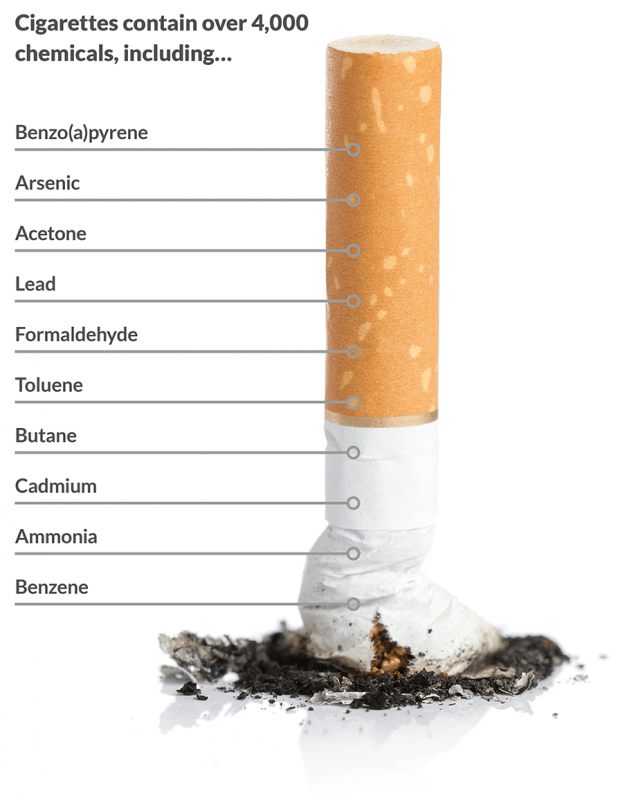
Infographic: Sea Saltash
Instead, the world has become one giant ashtray.
Statistics vary but researchers have reported that 75% of smokers dump their butts on the ground; 38% of total littered waste is butts; and 52 million butts have been collected in 27 years of beach cleanups, a number that represents a fraction of the littered butts.
Smoking is both a public health and a planetary hazard. To make cigarette filters (what becomes the spent butts), manufacturers produce a plastic—cellulose acetate—by chemically altering wood pulp. (The lining inside jackets is often cellulose acetate.)
Butts are also like miniature Superfund sites free-floating in the environment; tobacco, whether manufactured or au naturel, is toxic when smoked, and filters absorb the poisons produced.
Some of the all-star toxicants found in spent cigarette filters are nicotine, polycyclic aromatic hydrocarbons, heavy metals, insecticides, nitrosamines and phenols.
For fish, snails, worms, frogs and other marine organisms exposed to these toxicants, studies have shown disruption to livers, testes, immune systems and DNA.
In those early days of litter research, the tobacco industry fretted about butt litter but not because of the toxicity.
Once-secret memos released publicly years later confirmed that the industry worried about a smoker being seen as “careless, offensive and occasionally harmful with his debris” and that would cause a “growing social disapproval of … smoking.”
To combat the image, the industry decided to fund anti-litter campaigns in the United States and the United Kingdom. How thoughtful.
Probably the first independent study to look at smokers’ behaviors and attitudes was only published in 2011. Some juicy tidbits came out of that study.
Men, for example, admit to littering butts more than women and yet observational studies show the genders are equal opportunity scofflaws when it comes to pitching their butts into drains, gutters or sewers. Women just feel more guilty about their lack of decency.
The most depressing find, however, was that the majority of smokers view butts as litter—and they litter anyway. What can be done?
Amping up recycling efforts might help—butts are already recyclable and companies exist to repurpose them, such as TerraCycle, which produces plastic pallets and other products—but recycling will never keep up with the production of single-use plastics, such as cigarettes. In California alone, smokers purchase over 12 billion cigarettes annually.
Another option is to look upstream at the manufacturers—can they rid cigarettes of their plastic filters? Politicians in a number of jurisdictions have introduced bills into legislatures to ban single-use cigarette filters, but the bills tend to die before becoming law.
Banning cigarettes is another strategy. In New Zealand, legislators are debating a bill that will prohibit anyone born after 2008 from legally buying tobacco products.
“Legally” is the operative word there. People will still find a way to smoke. Vaping, for instance, is easier to hide and it’s a bit more invisible, litter-wise.
Lynn Wharram, chair of the Surfrider Foundation’s chapter on Vancouver Island, British Columbia, has participated in beach cleanups since 2013.
“I see more ChapStick containers than vaping cartridges,” she says from her home in Victoria, British Columbia. E-cigarettes with their lithium-ion batteries are hazardous waste, however, often ending up in landfills instead of at battery recycling depots.
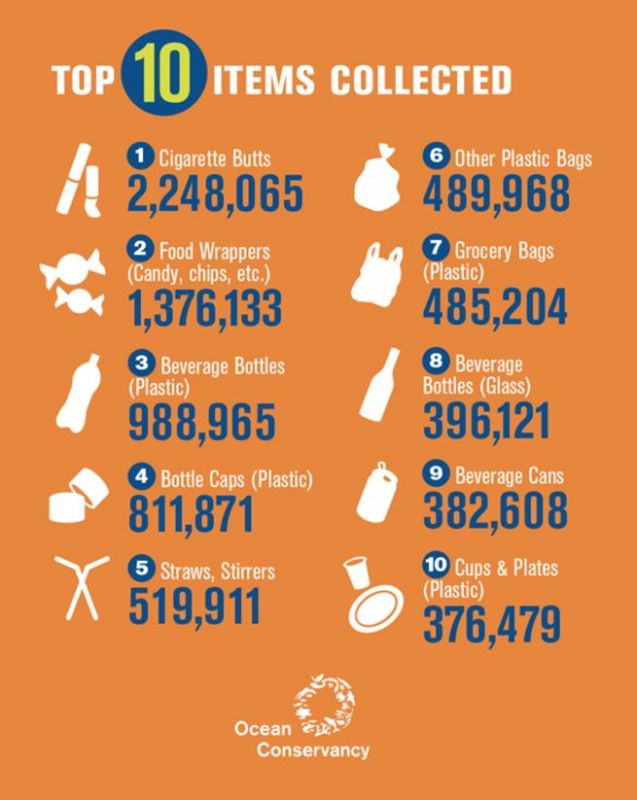
Results of 2014 international coastal cleanup. Infographic: Ocean Conservancy
The Surfrider Foundation has focused on making it easy for smokers not to litter. One of their initiatives—free pocket ashtrays—failed for a darkly comic reason.
“[Smokers] said the smell is just so bad,” Wharram says. “I mean, it’s gross.”
A few years ago, the Vancouver Island chapter teamed up with the City of Victoria and the Downtown Victoria Business Association to place 20 cigarette disposal canisters in obvious spots in the city’s downtown—outside pubs, event spaces and bus stops—a strategy that would interrupt the flow of butts from streets and storm drains to the sea.
There’s no data, but Wharram can attest that the canisters are used. From the beginning, they had to be emptied almost daily. The city now has a total of 100 canisters—each one costs CAN $150 and holds over 300 butts.
Let’s put canisters everywhere!
Alas, a conundrum arises. Places like public beaches and parks, where kids play and people enjoy the fresh air, are often nonsmoking.
“Parks don’t want us to put canisters there because they don’t want to promote smoking,” Wharram says.
This leads to some weird behavior in smokers.
Walker Tottman, an anthropology student at the University of Victoria (UVic), studied butt littering on the core campus, which is mostly designated nonsmoking. An avid garbologist—someone who studies societies through their refuse—Tottman collected around 8,000 butts off the ground, recording data on their location and condition from December 2019 to February 2020.
“I got a lot of what I interpreted as questionable looks,” Tottman says.
It would appear an odd hobby, especially considering most butts were soggy and tough to pick up.
Smokers, he observed, look for sheltered areas, preferably well obscured, since they aren’t supposed to be smoking.
Tottman, a nonsmoker, who has consistently picked up at least one piece of trash per day for the past decade or so, also delved into the rich literature of archaeological and cultural studies on waste and value, and came to a surprising conclusion. Maybe marginalizing smokers is a flawed idea.
Tottman surmises that one reason smokers litter is shame. Smoking illicitly creates trash, which also becomes illicit and stigmatized—like smokers—and counterintuitively reinforces littering behavior. They’re not supposed to be smoking, so they hide, smoke and toss the evidence before joining the moral high ground of the nonsmoking world.
The one-two punch of scorn—smoking, then littering—becomes a psychological burden.
“That makes me think that positive reinforcement can be a really good [strategy for combating waste], as well as addressing the stigma around cigarettes,” Tottman says. Shame never leads to proactive behavior.
[perfectpullquote align=”full” bordertop=”false” cite=”” link=”” color=”” class=”” size=””]In the U.S., tobacco companies spend $7.8-billion on marketing. Maybe they should be funding anti–butt litter campaigns.[/perfectpullquote]
After chatting with Tottman, I feel guilt around my judginess. Is it fair to be high and mighty about smoking when I unintentionally sprinkle microfibers from my outdoor clothes into the environment? What about the poisonous nanoparticles my car tires shed each time I drive? And have I kept track of all my lip balms over the years?
In the spirit of compassion, I engage with a woman sitting on a bench smoking in the pedestrian plaza near my house, once a nonsmoking sanctuary until someone tore down the nonsmoking signs.
My attempts to have the signs replaced have found me and my husband in absurd conversations with local bureaucrats. They have informed us that smoking is prohibited in parks and public plazas, which we know and is why we’re requesting replacement signs.
So far, my efforts have yielded an envelope full of stickers for us to plaster around the neighborhood informing smokers they must smoke seven meters away from the entrance. What entrance? In my requests, we’ve never mentioned entrances. For amateur comedy scholars, conjure the farce of Abbott and Costello’s famed “Who’s on First?” comedy routine.
Without the signs, smokers now gather in the plaza and butts dot the concrete and grass. I ask the woman what she will do with her spent butt. She points to the garbage can and says she always disposes of them properly.
Most often I see her—a white-haired old woman with a cane—smoking in front of an apartment building a short stroll away. A clutch of people congregate there daily, some litter their butts while some use the cigarette canister affixed to a signpost. She uses the canister, though it’s often full and even if it’s not full, she says, some people still throw down the butts, and she doesn’t know why.

Down and dirty. Photo: Petr Kratochvil/Public Domain
Until we can stamp out cigarettes for good, the trick is to change smokers’ perspective on butts. The desire to rid the environment of butt litter is high, with governments of all levels and nonprofit organizations leading the charge through various campaigns.
Surfrider chapters across Canada, the United States and Europe have programs aimed at keeping coasts free of butt waste.
In Canada, Unsmoke Canada has provided grants to organize cleanups as they push to reduce tobacco use to only 5% of the population by 2035, and Physicians for a Smoke-Free Canada advocates for legislative change. Montreal—where cigarette butts jettisoned into outdoor flower pots caused 125 fires and $1.2-million in damages during the first half of 2020—has a campaign to encourage proper disposal of butts, as do Toronto, Vancouver and other cities across North America.
In the United States, the Cigarette Butt Pollution Project is dedicated to eliminating butt waste, and the National Oceanic and Atmospheric Administration has funding initiatives focused on butt litter through their Marine Debris Program.
Admirable, yet the butt waste problem remains.
Maybe we’re approaching it the wrong way. Tottman wonders about positive reinforcement, and a couple of other researchers are also moving beyond scolding and into humor.
Evolutionarily, humor is a total ninja move for humans. Research has shown that humor is probably the strongest tool we possess when the job calls for nudging people to act differently. Bombard people with funny messages that show their behavior is unreasonable, and they’re more likely to quit acting like nincompoops.
Thomas Webler, a researcher at the Social and Environmental Research Institute in Massachusetts, and a colleague, Karin Jakubowski, examined attitudes about butt littering among 7,532 college-aged smokers, 18 to 24. Attitudes have not changed since the 2011 study.
Webler, though, wondered if he could change attitudes through funny advertising. In a class he created at Keene State College in New Hampshire, combining graphic design and environmental studies, Webler tasked students with an assignment to create funny anti–butt litter commercials, or PSAs. The 32 PSAs were then shown to the wider student body, who ranked the eight funniest.
“The videos were made by students in a narrow cultural group, so they don’t represent the world population very well,” Webler says.
I laughed out loud at a couple, including the exchange of garbage through a television screen between a cooking show host and a smoker.
The next phase of the study focuses on whether the PSAs work. Will the smokers who view funny commercials report that they are more likely to treat their butts like waste compared with smokers shown a boring poster with butts on the ground and a message that reads something like, “Hey, don’t do that”?
I’m betting on comedy. Via Facebook, I asked the smart-ass comedian Hasan Minhaj to take on cigarette butt waste—surely his stand-up routine about cruises convinced some viewers that cruise ships are the cigarette butts of vacations, unwelcome detritus in our shared oceans? Stick around for the next issue of The Upwell, where I’ll let you know if he answers. [The Upwell: Notes from the Editor is a semiregular special edition to the Hakai newsletter that brings analysis of issues impacting coastlines around the world. —Editor]
Not everyone is funny, or has a microphone or a marketing budget. Oh, wait. In the United States alone, tobacco companies have a marketing budget, collectively spending $7.8-billion in 2020. Maybe they should be funding the funny anti–butt litter campaign?
Donate to support environmental journalism.
The views expressed in this article belong solely to its author and do not reflect the opinions of anyone else associated with Columbia Insight.




